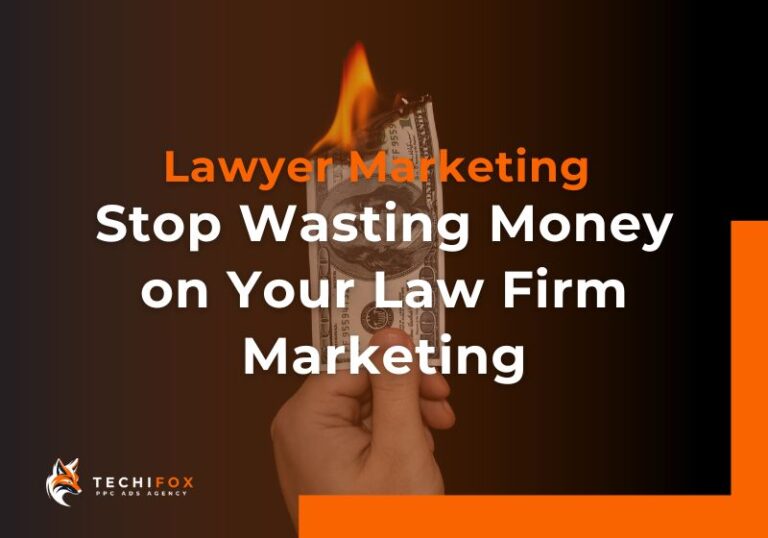Legal marketing is a constantly changing field. It’s like a tightrope walk, where lawyers need to advertise their services while also being very professional and ethical.
Imagine a world where fairness and persuasion meet, and trust is like money.
Every word, picture, or click can affect how people see your law practice.
Lawyers must follow strict rules, like a special code, to succeed in this unique marketing landscape.
Welcome to the intriguing world of “3 Legal Marketing Rules” that you should NOT violate.
In the legal world, marketing goes beyond getting noticed; it’s about being honest, clear, and respecting the values of the legal system.
Let’s dive into the complex world of legal marketing and discover the three crucial rules that you must follow.
Breaking these rules can harm your law firm reputation and integrity.
Join us as we delve deep into these critical principles, understanding why they matter, and how they intertwine with the rapidly evolving digital landscape, including the ever-potent world of legal PPC advertising.
Together, we’ll discover the art of ethical legal marketing, where the pursuit of success harmonizes seamlessly with the unwavering commitment to justice.
1. Avoid False or Misleading Advertising
The Golden Rule in Legal Marketing: Avoid False or Misleading Advertising

When it comes to legal marketing, there’s one rule that should always be at the top of your list: Avoid False or Misleading Advertising. It’s simple, really – don’t say things that aren’t true or might trick people.
So, what does this mean for lawyers and law firms?
It means you can’t make promises you can’t keep.
You can’t say you’re the best lawyer in the world if you don’t have the awards or results to prove it.
You can’t guarantee a specific outcome for a case because, well, the law is unpredictable.
Why is this rule so important?
First, it’s about trust.
Clients trust lawyers to be honest and upfront about what they can do.
If you promise something you can’t deliver, you’ll lose that trust fast.
Second, there are legal consequences.
The consequences of violating this rule, both ethically and legally
- Ethical Consequences: False or misleading advertising erodes trust and credibility with your audience, damaging your brand’s reputation in the long term.
It can lead to disgruntled customers who may share their negative experiences, harming word-of-mouth marketing.
- Legal Consequences: Violating advertising regulations can result in severe legal penalties, including fines and legal actions.
Regulatory bodies such as the Federal Trade Commission (FTC) in the United States closely monitor and take action against deceptive advertising practices.
- Loss of legal clients: Misleading advertising can lead to your legal clients feeling cheated or betrayed, causing them to abandon your brand for competitors who offer genuine value and honesty.
- Financial Impact: Paying fines, settling lawsuits, or dealing with reputational damage can have significant financial repercussions for your legal business.
- Long-Term Impact: Rebuilding trust after engaging in deceptive advertising can be a lengthy and challenging process, making it crucial to prioritize honesty and transparency in marketing efforts.
- Loss of legal clients: Misleading advertising can lead to your legal clients feeling cheated or betrayed, causing them to abandon your brand for competitors who offer genuine value and honesty.
2. Maintain Client Confidentiality and Privacy

It’s not just a guideline; it’s the foundation of trust and ethics in the legal profession.
So, what does this mean for lawyers and law firms?
It means you should never, ever spill the beans about your clients’ private matters.
Whether it’s a high-profile celebrity case or a simple divorce, what happens in your office stays in your office.
Here’s why this rule is crucial.
First, it’s all about trust.
Clients come to lawyers with their deepest, most personal problems.
They need to know that you won’t blab about their business to anyone else.
If they can’t trust you, they’ll find someone else who can keep their secrets.
Second, it’s the law. Legal ethics and rules demand that you protect your client’s confidentiality.
If you breach this trust, you could face serious consequences, including being disbarred.
In a nutshell, in legal marketing, respecting client confidentiality and privacy isn’t just a rule; it’s a sacred promise.
It’s the key to building a reputation as a trustworthy lawyer, and it’s what keeps the wheels of justice turning smoothly.
So, remember, mum’s the word!
Additionally,
How PPC campaigns can inadvertently compromise client privacy?
In the world of legal marketing your PPC (Pay-Per-Click) campaigns, which, if not managed carefully, can accidentally compromise your client’s confidential information.
So, how can lawyer PPC campaigns unwittingly put client privacy at risk?
Imagine running ads targeting specific legal services.
If not properly configured, these ads can reveal details about your clients’ cases, potentially violating their confidentiality.
Here are some tips to ensure you’re running legal PPC campaigns that protect your clients’ information:
- Ad Copy Caution: Be mindful of the language you use in your ads.
Avoid specifics that could reveal personal or sensitive details.
Focus on general legal services rather than case specifics. - Landing Page Discretion: Ensure that the landing pages your ads direct users to are generic and informative without disclosing client-specific information.
Never link to case-specific content. - Negative Keywords: Use negative keywords to filter out irrelevant searches.
This prevents your ads from appearing in searches that could compromise client privacy. - Geo-Targeting: If your services are location-specific, use geo-targeting to narrow your audience.
This helps avoid revealing information about clients from different areas. - Regular Auditing: Continuously monitor and audit your legal PPC campaigns.
Review the ad content and landing pages to ensure they align with your commitment to client confidentiality. - Training: Educate your marketing team on the importance of client privacy.
Make sure everyone involved in PPC campaigns understands the sensitivity of legal cases and the need to protect client information.
Note: Remember, in legal marketing, trust is paramount, and safeguarding your clients’ privacy is not just a rule but a duty that defines your professionalism and integrity.
3. Adhere to Professional Conduct Codes
In legal marketing, these codes are like the guiding stars of the legal profession, and they’re just as crucial in your marketing efforts, including PPC (Pay-Per-Click) campaigns.
Why is it so important to stick to these codes when marketing your legal services?
Here’s why:
- Trust is Everything: Clients trust lawyers to uphold the highest ethical standards. When you follow professional conduct codes in your marketing, you show that you’re trustworthy. Clients are more likely to choose a lawyer they can rely on.
- Avoiding Legal Trouble: Ignoring these codes can lead to serious consequences, like disciplinary actions or fines.
Nobody wants that kind of headache, right?
By following the rules, you steer clear of legal hassles. - Setting a Good Example: Your marketing practices reflect on the legal profession as a whole.
When you play by the rules, you set a positive example for other lawyers and law firms, which benefits everyone.
So, whether you’re crafting a legal PPC ad or any other marketing content, remember: that sticking to professional conduct codes isn’t just a rule – it’s a path to trust, ethics, and success in the legal marketing world.
What Happens to Lawyers who don’t follow marketing & advertising rules:
- Disapproval of advertising: State bar associations may disapprove a lawyer’s advertising in advance, or ask a lawyer to change their advertising to comply with the local rules.
- Sanctions for violating ethics marketing rules: State bar associations may impose sanctions on lawyers who violate ethics marketing rules. These sanctions may include fines, suspensions, or even disbarment.
- Disqualification or suspension: Lawyers who engage in inappropriate marketing may be disqualified from representing clients in a particular case, or even suspended from practicing law altogether.
- Discipline for violating anti-solicitation rules: Lawyers have a duty not to solicit clients directly. Violations of this duty may result in disciplinary action.
- Liability under state consumer protection laws: Some states have consumer protection laws that prohibit false or misleading advertising. Lawyers who violate these laws may be liable to consumers.
- Possible criminal charges: In extreme cases, lawyers who violate advertising rules may face criminal charges.
- Lawsuits alleging intentional interference with another lawyer’s attorney-client relationship: Lawyers may be sued by other lawyers if they engage in unethical marketing practices that interfere with the other lawyer’s attorney-client relationship.
In addition to the consequences listed above, lawyers who don’t follow legal advertising rules may also damage their reputation and credibility. This could make it more difficult for them to attract and retain clients.
To avoid this situation, you can take help of a lawyer PPC agency that understands the legal marketing landscape, like TechiFox.
Ready To Grow Your Law Firm…
Need help with your law firm PPC marketing?
Fill out the contact form to get a FREE 30 MIN CONSULTATION with one of our legal marketing experts to see how we can work togather.



